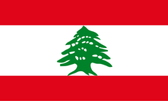
Call 0330 880 3600 Calls may be monitored or recorded. Opening Times.
- TRAVEL INSURANCE
- COVID-19 COVER
- More Options
- Help & Advice
- Existing Customers

Call 0330 880 3600 Calls may be monitored or recorded. Opening Times.

Need help?
UK Customer Services0330 880 3600*
Open Monday to Friday 9:00am to 6pm, Saturday 8:30am to 4pm and closed Sundays.
*Calls are recorded for training and quality purposes.
Other Guides

Official name: Lebanese Republic
Capital city: Beirut
Languages spoken: Arabic, French, English
Population: Around 5.3 million
Currency: Lebanese pound (LBP), though US dollars are widely used
Time zone: GMT+2
Driving side: Right
Climate: Mediterranean climate with hot, dry summers and mild, wetter winters, especially along the coast
Lebanon is a small yet culturally rich nation on the eastern Mediterranean coast, famed for its history, cuisine, and stunning mountain landscapes. Beirut, often called the "Paris of the Middle East," mixes old-world charm with vibrant nightlife and resilient spirit. Visitors can explore Roman ruins, cedar forests, and picturesque coastal towns, all within a short drive of each other.
However, the country continues to face political and economic instability. Demonstrations are common, and tensions along the borders with Syria and Israel remain high. Power cuts and shortages of essential goods are frequent, and the security situation can change quickly. Travellers are strongly advised to check the latest FCDO advice before planning a trip.
Lebanon is bordered by Syria to the north and east, Israel to the south, and the Mediterranean Sea to the west. Despite its small size, the country’s geography is diverse, with a narrow coastal plain, two mountain ranges, and the fertile Bekaa Valley. Mount Lebanon peaks at over 3,000 metres, providing both ski resorts and scenic hiking trails.
Beirut–Rafic Hariri International Airport is the country’s main international gateway, with flights connecting Lebanon to Europe, the Middle East, and beyond. Travel within the country is possible by bus, shared taxi (service taxis), or private car hire, though traffic congestion in Beirut can be heavy. Roads in rural areas vary in quality, and checkpoints are common.
UK travellers need a visa to enter Lebanon, which can usually be obtained on arrival for short stays, provided passports are valid for at least six months. Longer stays or multiple entries require visas in advance. The British Embassy is in Beirut, and many other countries maintain diplomatic representation in the capital.
The Lebanese pound (LBP) is the official currency, though in practice US dollars are widely accepted and sometimes preferred. Due to the ongoing financial crisis, exchange rates fluctuate significantly between official and parallel markets. Credit card acceptance is limited, and cash is essential for most transactions. ATMs may be unreliable outside Beirut.
Healthcare in Lebanon varies greatly. Beirut has private hospitals of a good standard, but facilities elsewhere may be basic. Due to shortages of medicines and power cuts, access to care can be limited. Travellers should ensure they have comprehensive travel insurance covering medical evacuation. Pharmacies are common in urban areas, but supplies may be inconsistent.